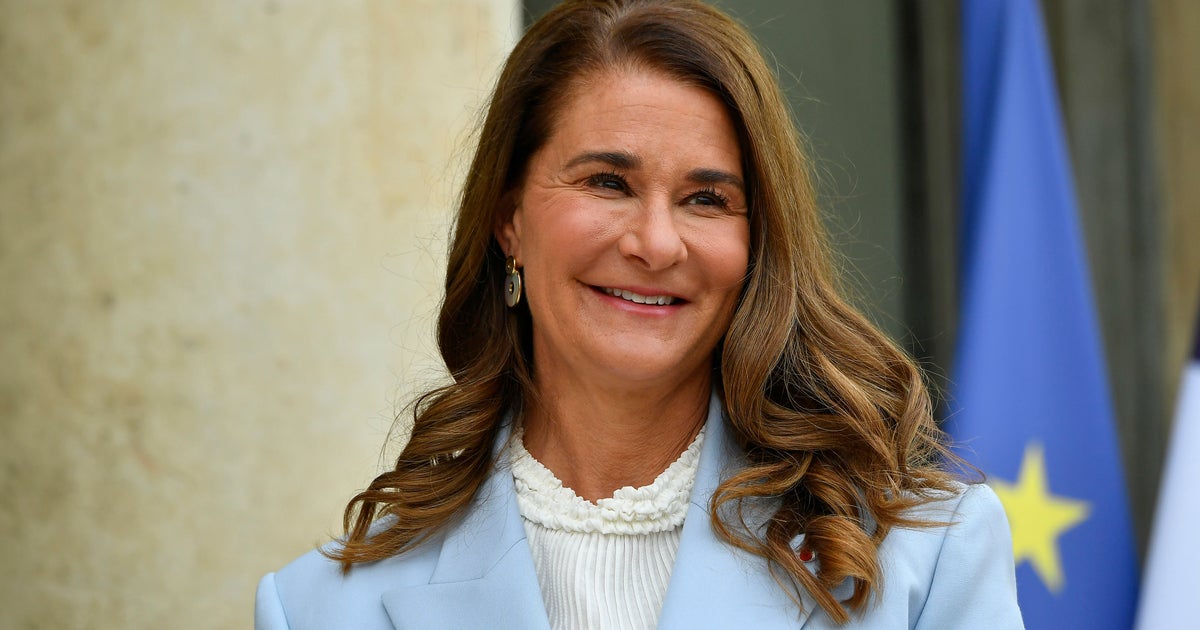One family's adventure with universal basic income of $1,000 a month
New Hampshire resident Chuck Fassi feared he and his family would become homeless while he struggled to find work after he resigned from his job of 13 years over a dispute with his employer in the chemical equipment industry.
Because he resigned from his role as a field technician, he was ineligible for unemployment benefits. "So we had a period when we had no income," the married father of one said.
Enter New York City entrepreneur Andrew Yang, a longshot Democratic presidential candidate who's proposing a plan he calls the "Freedom Dividend" -- a universal basic income of $1,000 per month for every American adult.
This year, Yang will use the Fassi family to demonstrate how the proposed stipend would work if he's elected president. The money for the family will come directly from the candidate's pocket so the test doesn't violate campaign finance laws, experts say. Yang will also select a recipient in Iowa. (New Hampshire and Iowa are the first two states on the presidential caucus and primary calendar.)
Chuck Fassi has since found work, but the family still depends on the financial padding the living stipend provides.
They're spending it on basic necessities like food and to make sure their daughter graduates debt-free from college. Her latest tuition bill has been paid in full, mom Jodie Fassi said.
"It's just great that he's putting his money where his mouth is," she said of Yang, who made his fortune starting a series of successful companies, including Manhattan Prep, which was acquired by Kaplan Inc. in December 2009.
An appealing idea
Guaranteed incomes are being put to the test in the U.S. following similar experiments in other countries, including Finland. Full results of a universal basic income trial there are expected in 2020.
The stripped-down theory and its easy implementation are appealing, according to proponents of the strategy.
"We are in this political moment when people are looking for big ideas to solve really hard problems, and there is a lot of energy around basic income because evidence around it already exists. But it's also popular because of the simplicity of the idea and the opportunity it provides both in terms of economic freedom and dignity," said Taylor Jo Isenberg, managing director of the Economic Security Project, an organization dedicated to ending poverty in America though cash transfers.
Technology visionaries Mark Zuckerberg and Elon Musk have also said they believe in a guaranteed income for American adults. Musk has predicted that advances in artificial intelligence will eliminate so many jobs that cash handouts will be necessary.
California test is rolled out
The city of Stockton, California, this month began testing a pilot program that distributes $500 a month to approximately 100 residents -- making it the country's first government-led experiment with free money.
Potential recipients in Stockton said they'll likely spend the handouts on continuing education, business ideas and health care, according to the program's architects. Budding entrepreneurs said they want to start companies, while others said, "'I haven't been to the doctor in a few years,' or 'I would like to go to the dentist,'" Isenberg told CBS MoneyWatch.
Mississippi mothers get help
In Jackson, Mississippi, the Magnolia Mother's Trust is testing its own version of a guaranteed income for African-American mothers who make an average of $11,030 annually. Springboard to Opportunities, which serves the community, said its existing services haven't fulfilled all of its members' needs. When asked what would be most helpful, citizens overwhelmingly said they needed cash -- to spend however they wanted.
"For us, it came directly from conversations with residents recognizing the gap in community need," said Springboard CEO Aisha Nyandoro. "We really started to find out where we were missing the mark a year-and-a-half ago, when we still didn't see individuals transitioning out of communities in the way we thought they would be."
The first disbursements were made in December, before Christmas. "We wanted to make sure we got it out before the holiday because we understand the stress that goes along with that for a lot of these families," Nyandoro said.
One mother has used the handout to enroll in a GED prep course, and she'll widen her job prospects if she passes the high school equivalency test this spring.
Some women said with the stipend they're now able to make repairs on their vehicles so they can look for jobs and drive to interviews without having to rely on a skimpy public transit system.
Others are saving for the first time in their lives. "For them to be able to put a little money away every month is exciting," Nyandoro said.
"Resources to actualize their goals"
Nyandoro hopes that the guaranteed income will provide a social safety net for a vulnerable population and also spark innovation.
She said cash -- as opposed to vouchers or government subsidies -- is freeing because there's no directive on how to spend it. "We wanted to make sure families had the resources to actualize their goals," Nyandoro said.
She hopes the experiment will spark a larger debate about the country's inadequate social safety net.
"The goal of the pilot, quite frankly," she said, "is to get to a place where we can have larger conversations and do additional fundraising so we can get to a three-year full-blown experiment that we feel is necessary to change the system."




